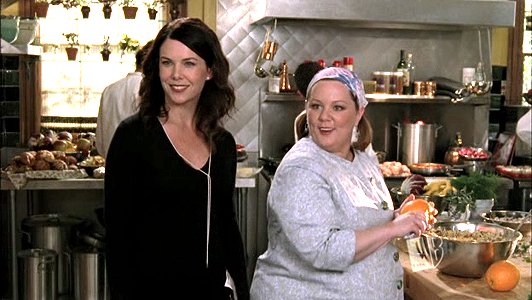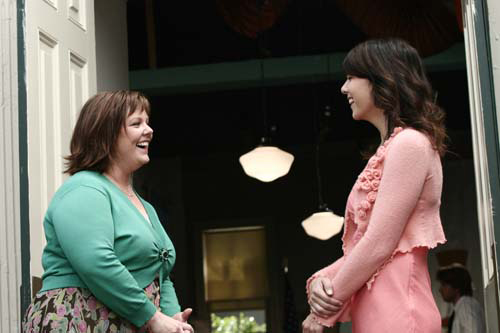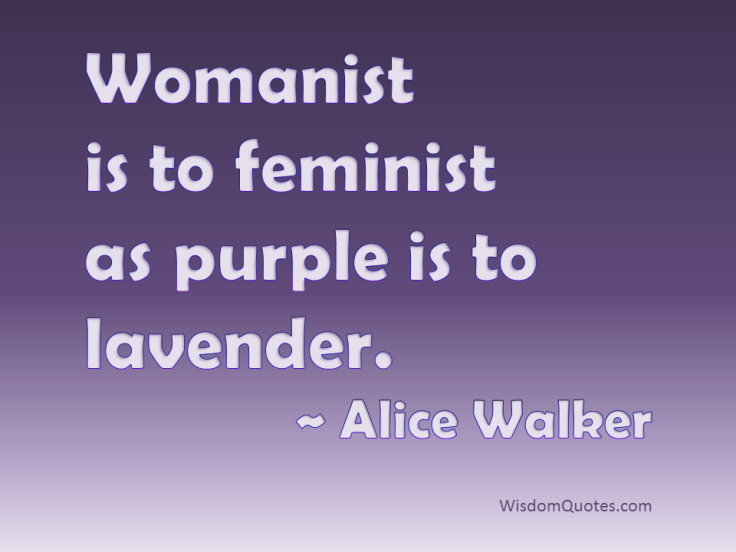
I love Gilmore Girls. I’ve seen the entire series at least three times over. It was a huge bonding experience with my mom. It’s portrayal of mother/daughter relationships is the most accurate I’ve ever seen. I love how all of the characters have massive flaws, making the whole show more realistic, albeit frustrating at times. But in the midst of the relationship truths and daily obstacles there is a secret lie that Gilmore Girls tells and it has to do with women’s bodies.
Lorelai and Rory eat whatever they want, whenever they want and however much they want. Breakfast is donuts and pop tarts. Cheeseburgers, pizza, and take-out are a daily thing. There’s some sort of TV/junk food binge every other episode. There are jokes galore about the “Lorelai Effect” which is some sort of cosmic force which permits them to eat anything and not get fat.
Then there is Sookie, an amazing gourmet chef that obsesses over perfect ingredients. She goes out of her way to find locally grown produce and hormone free poultry. Everything she makes is a gourmet concoction which every Foodie would love to try and have the recipe for. She is never shown eating junk food, or even eating for that matter – not that I recall. She’s on her feet all day long, cooking and directing her kitchen staff and then often goes home and makes huge, healthy dinners for her husband.
And she’s the fat friend.

Am I the only one who finds a problem with this?
Sookie is the fat friend, yet she is the only character besides Richard and Emily who maintains a long term relationship throughout the show.
Sookie is the fat friend, yet she doesn’t binge watch TV or eat chemical laiden junk.
Sookie is the fat friend, yet she rescues Lorelai in every food dilemma she has. (Her mother’s events, her father’s health issues, making her breakfast whenever she has a fight with Luke…”
However, repeatedly throughout the show Sookie is made out to be the ridiculous one because the character is not only fat, but accident prone and demanding in her profession.
Melissa McCarthy is one of my favorite people. She’s an amazing actor who’s not afraid to get down and dirty (Bridesmaids). I was so excited when I found out that she’s launching her own clothing line and horrified to find out that she was not included in the Gilmore Girls reunion. Recently I’ve seen “articles” about McCarthy’s weight loss being attributed to diet pills – which is not only a false representation of the actor and her work campaigning for body positivity but also takes advantage of all of the women who see her as a role model.

Recently my mom and I were talking about pop tarts for breakfast and the Gilmore Girls. I usually have them on hand for the kids and sometimes I’ll grab a package too if I’m rushed…or if I just want one. Lorelai and Rory eat pop tarts and they’re thin. Why can’t we do that? What’s wrong with us? Why can’t we eat what we want and look like Lorelai?
Because it’s TV.
And it’s a lie.
